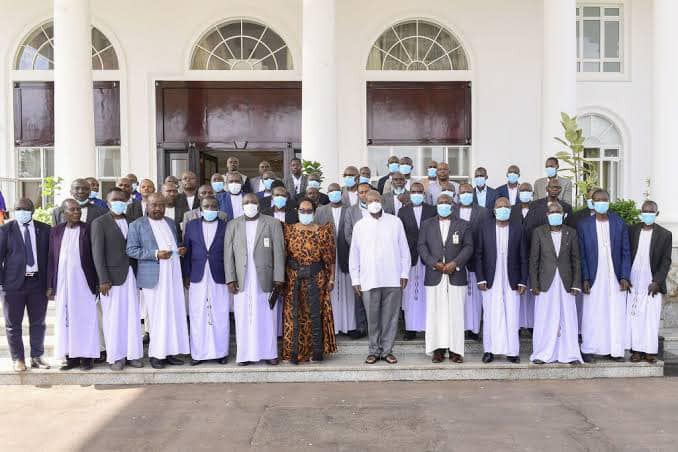By Denis Jjuuko
Last year, my friend lost a mother and we drove down to Kyaggwe for her burial. The ceremony was going well, punctuated with what seems to be the Church of Uganda anthem — Yesu Omwana gw’Endiga. Every few minutes, the choir would start yet another installation of this popular hymn.
All was going well until preaching time when the priest turned the funeral into a begging charade for fuel, car repairs, meals and anything that came to his mind. Every time he made a joke and people laughed, he would pick out the person who laughed the most and ask them to contribute. His assistant was at hand with the basket to collect the money. The begging went on for an hour or so again punctuated with Yesu Omwana gw’Endiga whenever he felt people were no longer contributing as expected.
Also, there is a Catholic priest, popular with his choice of words about the secular world during his preaching. He is invited frequently to speak at non-church events. One time, he was a keynote speaker at the event I attended and he spent a large part of his keynote address begging for a microwave, of all things!
The organisers of the event seemed embarrassed. After his address, they announced that he will be going back to the rectory with one. Microwaves are some of the cheapest kitchen wares in many urban households. Had he simply privately told them of this need, they would have bought it. He didn’t need to publicly beg for it.
I remembered these two incidents the other day when a bishop begged for indulgence to beg the president for a new vehicle. It was a tad embarrassing. See, I grew up in Masaka where I was used to seeing bishops with several cars. Bishop Ddungu with his famous black Mercedes Benz limo and later a Peugeot 505 as the Benz aged. Even ordinary priests drove nice cars prompting many young boys to dream of joining Bukalasa seminary. I don’t remember ever as a young person hearing a priest begging for fuel, clothing or some cheap household item.
The day before the bishop made begged for a vehicle, a section of clan heads in Buganda were in State House begging for a contribution to their sacco. The president promptly offered Shs200m. I couldn’t believe that clan heads can go to beg for as little as Shs200m. I mean, there are 54 clans in Buganda. If each contributed Shs4m, they would get Shs216m, more than what the president promised them. They would get this money in the same period or less it took them to secure the appointment. There are some 15 million or so Baganda in Uganda, if they mobilized them, they would easily raise a few billion shillings. They can look at Saccos like CBS Pewosa. Just one branch of Masaka bought shares worth Shs1 billion during the Airtel IPO (initial public offer). It has less members than most clans.
Also, if the bishop worked out an income generating strategy, he wouldn’t have to embarrass himself publicly begging for some Japanese car on live TV at a national event. In fact, the president would donate without him begging first. He would appreciate his mobilization skills and trying to tap into those voters, he would endear himself by aligning with the church in that area.
Dioceses and clans must come up with sustainable business strategies. Again, if you look at a diocese like Masaka, they largely control the economy of the area. They have thousands of schools at all levels, dairies, printeries, brick making factories, hospitals, real estate, hospitality centres and even trading businesses. It is highly unlikely that the bishop there would publicly beg for a car. The diocese can afford to buy him one or two every few years.
Many religions are good at mobilizing people to build grandeur churches or mosques. It is not uncommon to find a beautiful church or mosque in a community where the masses can’t afford Nigiina sandals (low quality Crocs). If these poor people can be mobilized to put up a structure with the highest spike or minaret in the area, why can’t they be mobilized to build a silo or milling machine for their grains? Why can’t the diocese in Gomba own a factory that adds value to ginger grown in the area? Why can’t clans own coffee hullers in Buganda?
All Buganda clans have their ancestral grounds (obutaka). Many of them are nearly 1,000 years old with rich stories to tell. What is so difficult in turning this into tourism attraction that can tell authentic stories of our heritage? Each can easily make an annual after-tax income of Shs200m from both the Bazukkulu (clan members) and foreign tourists. Not every tourist is interested in lions and elephants. If real estate is their thing, they would also make more money in hotels at their ancestral ground than constructing rentals somewhere in Kampala.
Churches and clans need to be entrepreneurial and come up with strategies that can turn them into economic powerhouses that politicians can beg instead of the other way round. They can learn a thing or two from dioceses like the catholic one of Masaka.
The writer is a communication and visibility consultant. djjuuko@gmail.com










